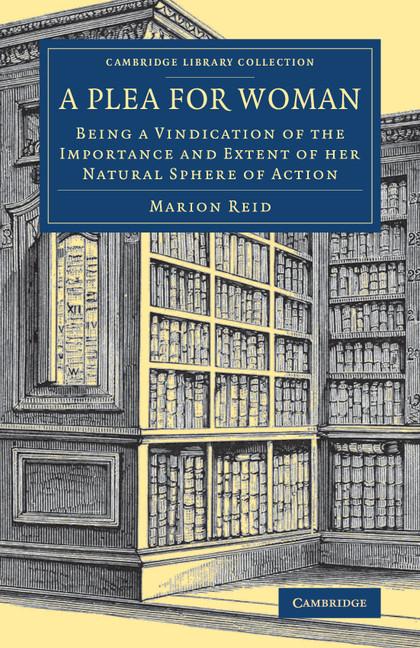The Scots feminist Marion Kirkland Reid (1817?-1902), who was also a member of the Ladies National Association for the Repeal of the Contagious Diseases Acts, founded by Josephine Butler, published this work in 1843. It was influenced by her attendance at the 1840 World Anti-Slavery Convention in London, where female delegates were allowed merely to listen to the debates and not to speak. A rallying call for 'perfect liberty', understood as 'that which allows as much freedom to each individual human being, as is consistent with the same degree of freedom in every other human being', the book was extremely popular in the United States, where, under the title Woman, her Education and Influence, it was republished four times between 1847 and 1852. With logic and wit, Reid skewers the stereotypical arguments that women, being by nature feeble in both body and mind, should remain in the domestic sphere.
Inhaltsverzeichnis
1. Introductory; 2. On the supposed power of female influence; 3. On the use of the term 'woman's sphere'; 4. Business and domestic duties compared; 5. Woman's claim to equal rights; 6. Objections examined; 7. Objections in Woman's Rights and Duties examined; 8. Examination of an article in the Edinburgh Review; 9. Injustice of the laws relating specially to woman; 10. Education; 11. Concluding remarks.













